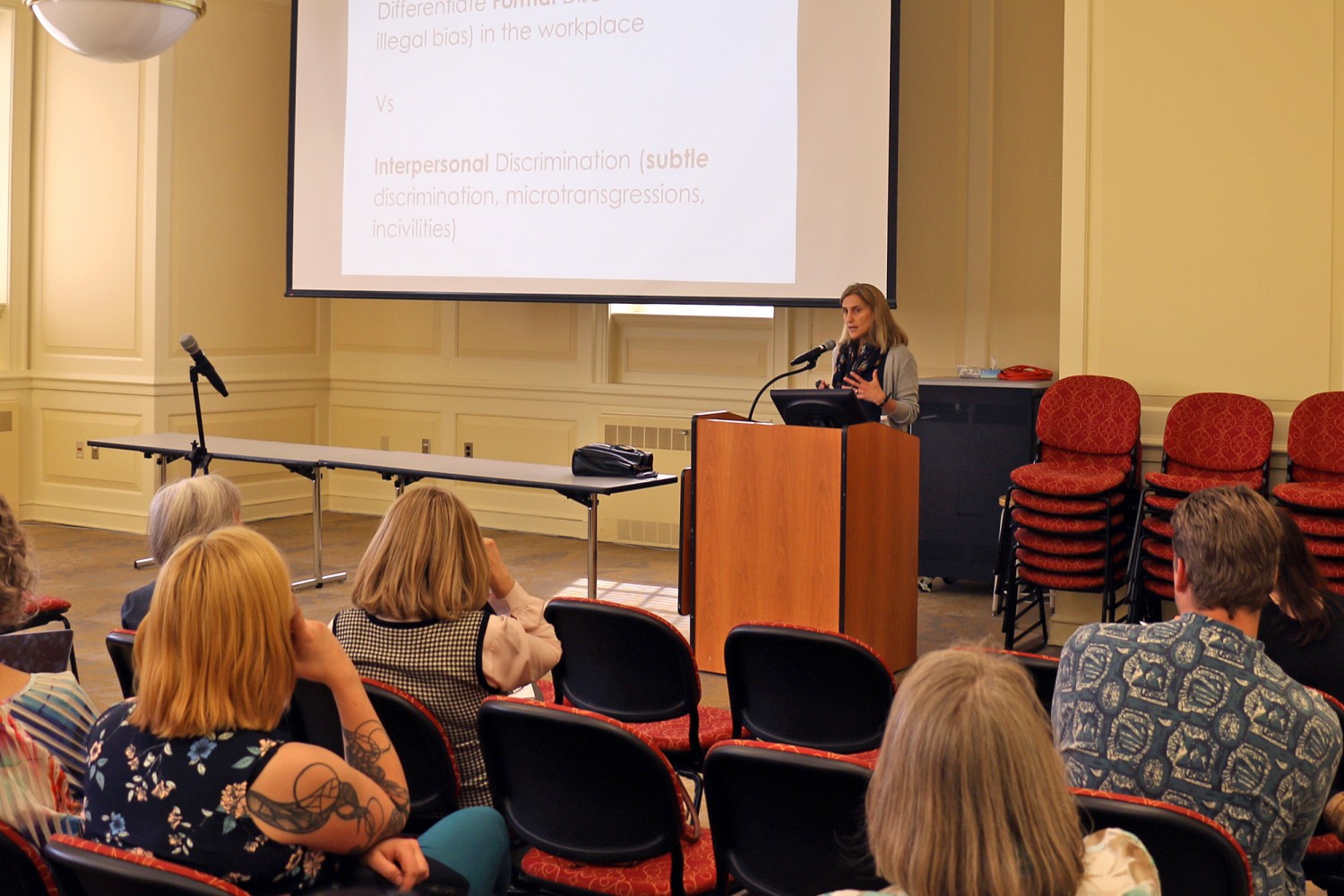By Hannah Himes
For The Diamondback
When a series of job applicants went into a store, they wore different hats on their head. Some hats read “Texan and proud,” while others read “gay and proud.”
It was part of a study by Mikki Hebl, a researcher and psychology professor at Rice University, to evaluate how effective antidiscrimination laws are.
As she explained at the University of Maryland on Wednesday, the results indicated gay and lesbian job applicants wouldn’t be treated the same as straight applicants.
“The interaction was longer, there were more words spoken, there was less perceived negativity and there was less coded negativity in interactions that involved the ‘Texan and proud’ [hat] versus the ‘gay and proud’ [hat],” she said.
In front of about 50 attendees at the Special Events Room in McKeldin Library, Hebl gave a lecture, “Gender and Race Gatekeepers,” on how biases and obstacles can hold back women, people of color, LGBT people and other groups.
Linda Steiner, a journalism professor at this university, found Hebl’s lecture was applicable to real-world issues and felt more informed about subtle discrimination.
“I think increasingly we’re coming to understand the value of her point that it’s not merely about formal discrimination, but it’s the informal, subtle issues that sometimes are harder to see and harder to deal with and certainly impossible to legislate,” Steiner said. “Once we’re aware of it we can arm ourselves, prepare ourselves for it and even mitigate against those subtle forms of discrimination.”
Hebl also explained the function of gatekeepers — individuals with the power to decide who progresses up the leadership chain and who doesn’t — and the importance of understanding their biases.
“Gatekeepers are not necessarily just white men,” Hebl said. “Gatekeepers are each one of us because biases are pervasive and each of us has biases. They’re tools that we use to quickly make sense of the world and unfortunately these biases lead us to be gatekeepers.”
Hebl — who has been published in peer-reviewed journals more than 100 times, according to her website — called on men to be allies for women to combat the discrimination they experience.
“Allies really can help, just as white allies can help blacks, just as men can help women,” Hebl said. “We are told, ‘OK, act like a woman,’ but we all know that if that happens, we’re not taken seriously.”
Zachary Maher, a neuroscience and cognitive science doctoral student, attended the lecture because he was interested in Hebl’s research, particularly in hearing about inequitable workplaces.
“I do research on language variation and how it affects children learning to read and so this isn’t exactly the part of the pipeline I work on, but it’s really relevant to what I care about and the deeper motive to what I do,” Maher said.
The event was hosted by the behavorial and social sciences college and the ADVANCE Program, which supports the advancement of women and underrepresented minority faculty at this university.
Nan Ratner, one of the organizers of the event and a hearing and speech sciences professor at this university, said she hoped Hebl’s lecture would make attendees “think about ways in which individuals can work to combat implicit bias or other forms of bias that seem to lead to underrepresentation of women and other groups at certain levels of achievement.”



